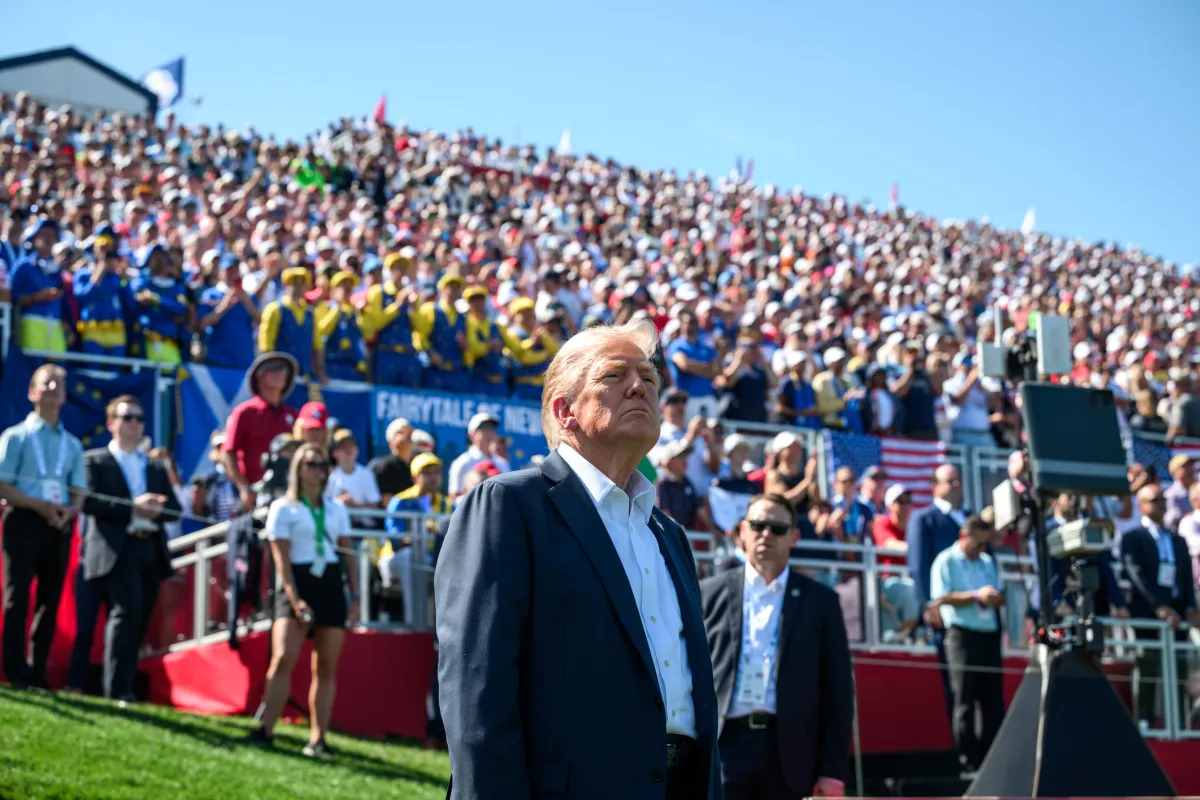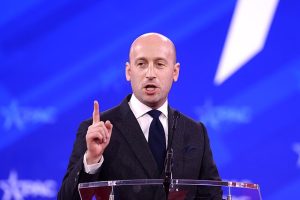As the 2025 Nobel Peace Prize was announced on Friday morning, attention quickly turned to one prominent world leader who was not among the honorees: President Donald J. Trump.
Despite his repeated claims that he “deserves” the world’s most prestigious peace award, and reports that several political figures—including Israeli Prime Minister Benjamin Netanyahu—had formally nominated him, experts say the president was never a realistic contender.
The award for 2025 went instead to María Corina Machado, the Venezuelan opposition leader and pro-democracy activist who has been at the center of efforts to restore democratic institutions in her country.
The Norwegian Nobel Committee described Machado as “steadfast in her support for a peaceful transition to democracy,” emphasizing the prize’s connection to global efforts to protect human rights and political freedoms.
A Moment of Global Symbolism
The timing of the Nobel announcement carried symbolic weight. It came on the same day that Israeli troops began withdrawing from parts of Gaza, marking the first phase of a ceasefire deal brokered earlier this year under Trump’s administration.
For the White House, the coincidence underscored the president’s argument that he has done more for international stability than his critics acknowledge. Speaking in recent months, Trump has repeatedly touted what he describes as his record of “ending six wars” and achieving “peace through strength.”
But for Nobel observers, the juxtaposition only highlighted how far Trump’s interpretation of peace diverges from the traditional values enshrined in Alfred Nobel’s will—values centered on diplomacy, reconciliation, and the advancement of human fellowship.
Trump’s Claim: ‘They Will Never Give It to Me’
Just weeks into his second term, President Trump told supporters that he “deserves” the Nobel Peace Prize but doubted he would ever receive it, alleging political bias among the Oslo-based judges.
“They will never give it to me,” he said during a rally in Florida this summer. “But everyone knows what we’ve done—no wars, no disasters, just peace and strength.”
The president’s comment echoed a sentiment he has expressed for years. During his first term, Trump frequently reminded audiences that he had been nominated for the prize in 2020 and 2021 for facilitating normalization agreements between Israel and several Arab nations under the Abraham Accords.
Those accords—hailed by some as a breakthrough in Middle East diplomacy—were indeed cited by several of his supporters as justification for recognition. However, Nobel analysts point out that the committee’s process and priorities extend far beyond single-policy achievements or short-term truces.
How the Nobel Peace Prize Works
Each year, thousands of individuals worldwide—ranging from university professors to parliamentarians—are eligible to submit nominations for the Nobel Peace Prize. Receiving a nomination, therefore, does not mean a candidate is seriously being considered by the committee.
According to Nobel historian Asle Sveen, Trump’s name may have been included among hundreds of nominees, but “he had no chance to get the Peace Prize at all.”
“The committee looks for actions that advance fellowship among nations,” Sveen explained to ABC News. “That’s the core of Alfred Nobel’s vision. Donald Trump’s policies, both foreign and domestic, have often been the opposite of that.”
The Nobel Committee’s own guidelines cite the prize’s purpose as recognizing “the person who shall have done the most or the best work for fraternity between nations, for the abolition or reduction of standing armies, and for the holding and promotion of peace congresses.”
By that definition, said Sveen, Trump’s confrontational rhetoric and preference for unilateral action undermined his case.
‘He Simply Didn’t Fit the Criteria’
Nina Græger, director of the Peace Research Institute Oslo (PRIO), agreed that Trump did not meet the prize’s formal or philosophical standards.
“The Nobel Peace Prize is not about political popularity or self-claimed achievements,” Græger said. “It is about lasting contributions to peace, reconciliation, and international cooperation. President Trump’s record doesn’t reflect those principles.”
Græger pointed to the committee’s emphasis this year on defending democratic institutions at a time when authoritarianism is on the rise. That focus, she said, “could not be more different from the tone and tactics” of Trump’s leadership style.
When announcing Machado’s win, the Nobel Committee explicitly stated:
“Democracy is a precondition for lasting peace. However, we live in a world where democracy is in retreat, where more and more authoritarian regimes are challenging norms and resorting to violence. María Corina Machado has been steadfast in her support for a peaceful transition to democracy.”
That message, analysts noted, was a clear reflection of the committee’s broader priorities—and, by implication, a signal of why Trump’s approach did not resonate with them.
Who Is María Corina Machado?
Machado, 57, has been one of Venezuela’s most prominent opposition figures for over two decades. She co-founded the civil society group Súmate, which has campaigned for electoral transparency, and has faced persecution and multiple arrests under the country’s authoritarian government.
Her selection was widely praised across Europe and Latin America as a reaffirmation of democratic resilience.
Norwegian Nobel Committee Chair Berit Reiss-Andersen described Machado as “an emblem of peaceful resistance in an age of repression,” adding that her courage “has inspired millions in Latin America and beyond.”
Machado’s win also reflected the committee’s tendency in recent years to honor individuals who represent grassroots or civil movements rather than heads of state—a trend that began with laureates such as Maria Ressa and Dmitry Muratov (journalists recognized in 2021) and continued with Narges Mohammadi, the imprisoned Iranian human rights activist awarded in 2023.
Timing and Eligibility Questions
Another reason Trump was unlikely to win had to do with timing. According to Darren Kew, dean of the Joan B. Kroc School of Peace Studies at the University of San Diego, the period considered for the 2025 award covered the year 2024—before Trump returned to office.
“If you look at his domestic record and international record in 2024, he has a lot of detractors as well,” Kew said. “The committee can technically decide on whoever it wishes, but its decisions are generally retrospective. They look at concrete outcomes, not campaign promises or future policies.”
Kew also noted that nominations submitted after January 31 of a given year are not considered for that year’s prize. Several of Trump’s reported endorsements, including Netanyahu’s, arrived after the deadline.
The Broader Meaning of the Decision
While Trump’s supporters may view the Nobel Committee’s decision as politically motivated, analysts say it reflects a consistent pattern: the Nobel Peace Prize has rarely gone to sitting presidents, particularly those still engaged in polarizing or militarized policies.
The last U.S. president to win was Barack Obama in 2009, awarded early in his first term for his “extraordinary efforts to strengthen international diplomacy.” That decision itself drew controversy, with critics arguing that Obama had not yet achieved tangible results.
Since then, the committee has shifted toward recognizing activists and organizations over heads of state.
“The committee has clearly become more cautious about rewarding political leaders,” said historian Sveen. “They now look for people whose contributions are moral, enduring, and not tied to any single administration’s agenda.”
Trump’s Response: Silence So Far
As of Friday afternoon, President Trump had not publicly commented on Machado’s win. A White House spokesperson declined to issue a formal statement but pointed reporters to Trump’s previous remarks in which he accused the Nobel Committee of “bias against strong leaders.”
Meanwhile, Machado’s supporters in Caracas celebrated the announcement as a “victory for all Venezuelans who believe in peaceful change.”
International observers noted that the committee’s choice sends a clear message about the global struggle between democracy and authoritarianism—a theme that continues to define world politics, from Latin America to Europe and beyond.
A Prize Beyond Politics
For Nobel experts, the takeaway from this year’s decision is straightforward: while Donald Trump’s foreign policy legacy remains debated, his approach simply did not align with the principles Alfred Nobel envisioned.
As Nina Græger put it, “The Nobel Peace Prize is not a reward for strength. It’s a reward for restraint.”
And for 2025, the Nobel Committee decided that restraint—and the courage to pursue peaceful change against tyranny—belonged not to a president, but to a dissident.

Emily Johnson is a critically acclaimed essayist and novelist known for her thought-provoking works centered on feminism, women’s rights, and modern relationships. Born and raised in Portland, Oregon, Emily grew up with a deep love of books, often spending her afternoons at her local library. She went on to study literature and gender studies at UCLA, where she became deeply involved in activism and began publishing essays in campus journals. Her debut essay collection, Voices Unbound, struck a chord with readers nationwide for its fearless exploration of gender dynamics, identity, and the challenges faced by women in contemporary society. Emily later transitioned into fiction, writing novels that balance compelling storytelling with social commentary. Her protagonists are often strong, multidimensional women navigating love, ambition, and the struggles of everyday life, making her a favorite among readers who crave authentic, relatable narratives. Critics praise her ability to merge personal intimacy with universal themes. Off the page, Emily is an advocate for women in publishing, leading workshops that encourage young female writers to embrace their voices. She lives in Seattle with her partner and two rescue cats, where she continues to write, teach, and inspire a new generation of storytellers.









